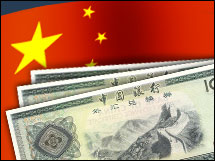|
China snubs foreign investment After years of courting foreign investors, Beijing may be losing its ardor for capital, reports Fortune's Clay Chandler.
(Fortune Magazine) -- Henry Paulson got a warm welcome when he returned to China last month in his new role as U.S. Treasury Secretary. But even as Beijing prepared to roll out the red carpet for the former Goldman Sachs (Charts) CEO, it was yanking the rug from under some of his old investment banking buddies. The week before Paulson's visit, China's securities regulator declared a moratorium on all foreign acquisitions of Chinese brokerages, making official a de facto ban that's been in effect for months. Chinese authorities billed the suspension as a temporary measure to help domestic financial institutions gird for increased competition. But among foreign businessmen in China, the move was widely interpreted as further evidence of a backlash against outside investment in an economy that has eagerly sought it for more than a decade.
Since the beginning of the year, officials have scuttled Citigroup's bid for an 85% stake in Guangdong Development Bank, an insolvent state-owned lender, and rebuffed U.S. private-equity firm Carlyle Group's $375 million bid for an 85% stake in Xugong Construction Machinery, a state-owned heavy-equipment manufacturer. Beijing has also dialed up pressure on foreign firms to allow their Chinese workers to be organized into state-controlled labor unions, forcing even Wal-Mart, notorious for resisting unions in the U.S., to accept them in China. Finally, in August, China introduced new rules requiring foreign investors to register with the Ministry of Commerce any transactions resulting in foreign control over companies in vaguely defined "key industries" or sectors that could influence state security. With their economy growing at an annual rate of 10%, China's leaders feel they can afford to turn up their nose at foreign investment these days. As exports surge - China racked up a record $202 billion trade surplus with the U.S. last year - the country is awash in dollars. Indeed, Beijing's stack of foreign currency reserves, already the world's largest, is expected to top the $1 trillion mark within the next few months. China remains Asia's No. 1 destination for outside investment by a wide margin. From January to August, China drew $37.2 billion in foreign direct investment (FDI), down 2.1% from the same period last year, according to the Ministry of Commerce. In August alone, FDI into China slumped 8.5% compared with the same month in 2005. But Arthur Kroeber, managing editor of China Economic Quarterly, urges keeping the downturn in perspective: "Clearly, there's new concern about M&A deals and foreign takeovers. But they're still quite happy to have you come and build a factory." Even so, the new ambivalence marks an important shift in Chinese thinking, with economic and political impact. Deng Xiaoping's endorsement of foreign-invested ventures in the early 1990s delivered China from decades of Maoist isolation and poverty; he shrugged off questions about social disruption, inequality, and corruption with the observation that "open windows let in flies." Deng's successors courted foreign investors with gusto, eagerly receiving Global 500 executives for face-to-face chats. But foreign business leaders are almost never granted an audience with China's current President, Hu Jintao, who has shrewdly consolidated his power base inside the party by positioning himself as a populist, attentive to the plight of ordinary folk buffeted by unruly markets and keen to prevent foreigners from wresting control of the economy. Last month's sacking of Chen Liangyu, the Communist Party boss in Shanghai, is an unmistakable rebuke to former President Jiang Zemin, who rose to power in Shanghai, and the freewheeling, money-mad ethos for which his city has come to stand. Tsinghua University economist David Li argues that opposition to foreign investment is, in part, a sign of economic maturity. China, he says, now has a cohort of homegrown companies strong enough to compete with foreign giants and ample incentive to keep them at bay. Increasingly, the penchant of local governments to woo foreign investors with tax breaks and subsidies fuels a sense of grievance among these domestic upstarts. That outrage could be counterproductive. MIT political scientist Yasheng Huang, whose 2003 book, "Selling China," questioned China's dependence on foreign investment and was widely debated in China, now fears an FDI backlash that will only make things worse. The key to improving China's competitiveness, he contends, isn't to slap more restrictions on foreign capital but to scale back restrictions on China's homegrown companies. One of the benefactors of the current slowdown is Paulson's old firm. Since 2004, Goldman has enjoyed Beijing's blessing on its complicated union with Gaohua Securities, a domestic brokerage it helped bankroll. Goldman's rivals - among them Morgan Stanley (Charts), Citigroup (Charts), and Merrill Lynch (Charts) - are eager to secure their own footholds in China's potentially lucrative domestic capital market. For now, they'll have to wait. Morgan Stanley buys China's Nan Tung Bank |
|

